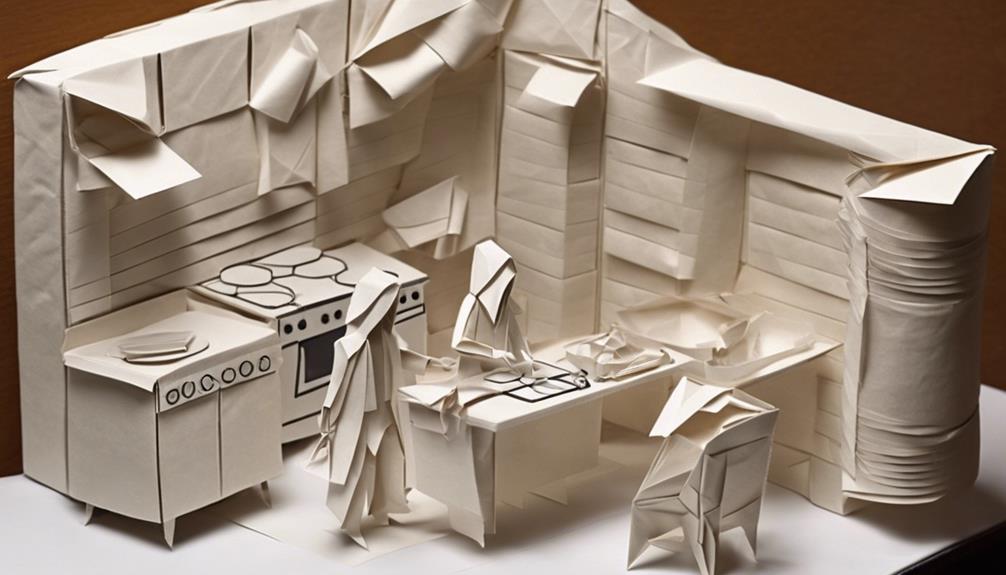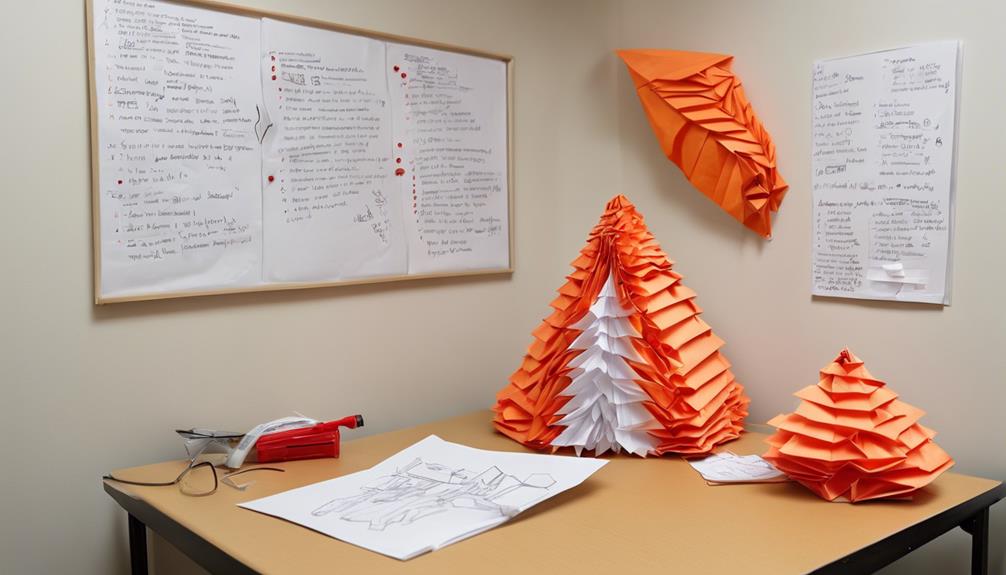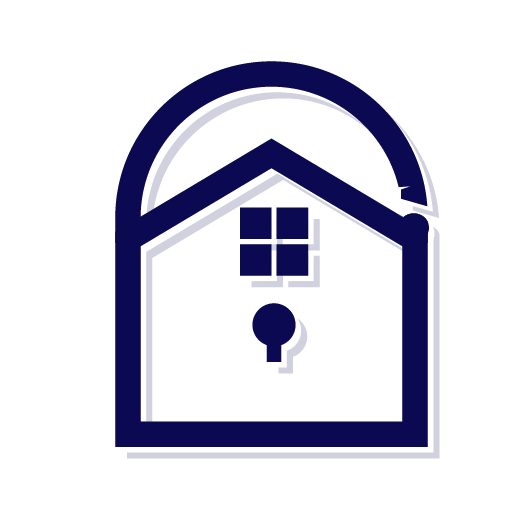Ever wondered if you are fully prepared for a fire emergency in your dorm room? From knowing the common causes of dorm fires to understanding the importance of smoke alarms, there are essential fire safety tips every college student should be aware of. But what about the specifics of cooking safely, handling electrical appliances, or even creating an efficient escape plan? Stay tuned to discover practical advice that could make all the difference in ensuring your safety and that of your dorm mates in case of a fire incident.
Common Causes of Dorm Fires

When it comes to dorm fires, understanding the common causes is crucial for prevention. Fire prevention is a serious matter, and being aware of potential risks can make a significant difference. One common cause of dorm fires is the misuse of electrical appliances. Overloading power strips, using damaged cords, or leaving devices unattended can all lead to dangerous situations. Another frequent cause is cooking mishaps. Forgetting about food on the stove or using cooking appliances improperly can quickly escalate into a fire. Additionally, campus regulations regarding items like candles, incense, or space heaters are in place for a reason. Ignoring these rules can easily spark a fire in a confined dorm room setting. By following fire safety guidelines and being mindful of campus regulations, you can help prevent dorm fires and ensure a safer living environment for yourself and your peers.
Importance of Smoke Alarms
Installing and maintaining smoke alarms in your dorm room is crucial for early detection and warning in case of a fire emergency. Fire drill preparation is essential for ensuring that you know how to respond promptly in case the smoke alarm goes off. Familiarize yourself with the sound of the alarm and the evacuation procedures outlined by your dormitory. Regular smoke detector maintenance is key to ensuring their effectiveness. Test your smoke alarms monthly by pressing the test button, and replace the batteries at least once a year. Make sure to keep the smoke alarms clean from dust and debris, as this can interfere with their functionality. In the event that the smoke alarm sounds, evacuate immediately and follow the predetermined escape routes. Remember, smoke alarms save lives by providing early warnings, giving you the time needed to escape safely.
Cooking Safety Tips

To ensure your safety in the dormitory, it's crucial to be aware of cooking safety tips that can prevent potential fire hazards. When cooking in your dorm room, it's essential to pay attention to basic safety practices to avoid kitchen fires and cooking hazards. Here are some key tips to keep in mind:
| Cooking Safety Tips | Description | Importance |
|---|---|---|
| 1. Stay in the kitchen | Never leave cooking food unattended. Most kitchen fires occur when food is left on the stove unattended. | Critical |
| 2. Keep flammable items away | Keep kitchen towels, paper towels, and oven mitts away from the stove. These items can easily catch fire. | Crucial |
| 3. Check appliances | Ensure that all appliances are turned off after use. Faulty appliances can lead to fires. | Essential |
| 4. Fire extinguisher | Know the location of the fire extinguisher in your dorm and how to use it. | Vital |
| 5. Grease disposal | Properly dispose of grease. Pouring hot grease in the trash can lead to fires. Let it cool before disposal. | Key |
Electrical Appliance Guidelines
When it comes to electrical appliances in your college dorm, it's crucial to follow safe usage practices. Be mindful of power strip precautions to prevent overheating and electrical fires. Avoid overloading outlets to reduce the risk of electrical hazards.
Safe Appliance Usage
Using electrical appliances safely in your college dorm or apartment is crucial to prevent fire hazards and ensure your well-being. Regular appliance maintenance is essential to reduce the risk of malfunctions that could lead to fires. Check cords and plugs for any signs of damage and replace them if needed. Avoid overloading outlets, as this can cause overheating and potentially start a fire. Always follow the manufacturer's instructions for proper appliance use and maintenance. Stay aware of fire prevention measures such as keeping appliances away from flammable materials and never leaving them unattended while in use. By practicing these safety tips, you can create a safer living environment for yourself and your fellow students.
Power Strip Precautions
For maximum safety when using power strips with your electrical appliances, always adhere to the manufacturer's guidelines and ensure proper usage. Avoid daisy-chaining power strips or using them in wet areas. Check for any frayed cords or damaged sockets before plugging them in. Remember to never overload a power strip, as this can lead to overheating and potential fire hazards. Make sure to use power strips with built-in surge protectors to safeguard your devices. When not in use, unplug the power strip to prevent any potential electrical issues. Additionally, practice fire drill procedures regularly and educate yourself on extension cord safety to minimize the risk of accidents.
Outlet Overload Risks
Are you aware of the risks associated with overloading electrical outlets when using your appliances? Proper outlet placement and organization are crucial in preventing a potential fire hazard in your dorm room. Avoid plugging multiple high-wattage devices into a single outlet to reduce the risk of overheating. Instead, utilize surge protectors to safely distribute power among your electronics. Surge protectors not only provide additional outlets but also offer protection against power surges that could damage your devices. When setting up your electronics, be mindful of the wattage each outlet can handle to prevent overloading. By practicing good outlet management and using surge protectors, you can enjoy a safer living environment while powering your essential devices.
Candle and Incense Safety
To ensure a safe living environment, always remember to keep candles and incense away from flammable materials and never leave them unattended. When it comes to fire prevention in your dorm room, practicing caution with open flames is crucial. Here are some essential candle and incense safety tips for you:
| Safety Tip | Description | Importance |
|---|---|---|
| Keep away from flammable items | Place candles and incense at least 12 inches away from anything that can catch fire. | Prevents accidental fires |
| Never leave them unattended | Always extinguish candles and incense before leaving the room or going to sleep. | Reduces fire risk |
| Use stable holders | Place candles on sturdy, heat-resistant surfaces and in holders that won't tip over easily. | Prevents spills and fires |
| Trim candle wicks | Keep candle wicks trimmed to 1/4 inch to prevent the flame from getting too large and causing a fire. | Ensures safe burning |
| Use alternatives when possible | Consider flameless LED candles or essential oil diffusers as safer alternatives to open flames. | Minimizes fire hazards |
Escape Routes and Meeting Points

When ensuring fire safety in your college dorm, it is vital to familiarize yourself with the escape routes and designated meeting points in case of emergencies.
Here are some crucial steps to follow:
- Evacuation Practice: Take the time to participate in evacuation drills organized by your dorm or university. Familiarize yourself with the sound of the fire alarm and the quickest routes to exit the building safely. Remember, practice makes perfect, and being prepared can save lives in the event of a real fire.
- Identify Meeting Spot: Establish a designated meeting spot outside the dormitory where all residents should gather in case of a fire. This spot should be a safe distance from the building but close enough for emergency responders to locate you easily. Having a specific meeting point ensures that everyone can be quickly and efficiently accounted for.
- Communication is Key: Make sure everyone in your dorm knows the escape routes and meeting spot. Clear communication can prevent confusion during a fire emergency and help everyone evacuate safely. Remember, it's better to be over-prepared than caught off guard.
Fire Extinguisher Basics
Understanding how to properly use a fire extinguisher is crucial for college students to effectively respond to potential fire hazards in their dormitory. When dealing with a fire, every second counts, and having the knowledge to operate a fire extinguisher correctly can make a significant difference. Here are some essential tips to help you master fire extinguisher basics:
| Fire Extinguisher Basics | Tips |
|---|---|
| Extinguisher maintenance | – Check the pressure gauge monthly. <br> – Ensure the pin is intact. |
| Proper use | – Remember the acronym PASS: Pull, Aim, Squeeze, Sweep. <br> – Stand at a safe distance while using. |
| Fire drill practice | – Participate in fire drills to familiarize yourself with the process. |
| Safety protocol | – Know the location of fire extinguishers in your dorm. <br> – Always prioritize personal safety and evacuate if the fire is too large. |
Regularly inspecting and maintaining your fire extinguisher, practicing with it during fire drills, and following the safety protocol can equip you to react effectively in case of a fire emergency. Remember, safety first!
Roommate Communication Plan

Establishing a clear roommate communication plan is essential for maintaining a safe and harmonious living environment in your college dormitory. Roommate conflicts can arise, but with effective communication strategies in place, many issues can be resolved smoothly. Here are three key aspects to consider when creating a roommate communication plan:
- Communication Boundaries: Clearly define boundaries regarding personal space, study time, visitors, and noise levels. Respect each other's need for privacy and quiet times to avoid unnecessary conflicts.
- Conflict Resolution: Establish a process for handling disagreements or misunderstandings. Encourage open dialogue, active listening, and a willingness to compromise. Having a structured way to address conflicts can prevent small issues from escalating.
- Roommate Agreements: Create roommate agreements that outline shared responsibilities, such as cleaning schedules, grocery shopping, and utility payments. Setting clear expectations from the beginning can help prevent misunderstandings and promote a more cooperative living arrangement.
Campus Resources for Fire Safety
You can access safety training sessions and learn about emergency evacuation procedures through campus resources. These sessions provide crucial information on how to respond in case of a fire emergency. Familiarize yourself with these resources to ensure you are well-prepared for any potential fire incidents.
Safety Training Sessions
Campus resources offer valuable safety training sessions for enhancing fire safety awareness among college students. These sessions are designed to equip you with the skills and knowledge needed to respond effectively in case of a fire emergency. Here are three key components of these training sessions:
- Hands-on Drills: You will engage in practical exercises that simulate fire scenarios, allowing you to experience firsthand the actions required during a fire incident.
- Interactive Learning: Through group activities, you will collaborate with peers to solve fire safety challenges and discuss real-life scenarios to better understand fire prevention strategies.
- Expert Guidance: Trained professionals will lead these sessions, providing you with expert advice on fire safety protocols and procedures to ensure your safety in dormitory environments.
Emergency Evacuation Procedures
Incorporating the knowledge gained from safety training sessions, understanding the emergency evacuation procedures provided by campus resources is crucial for ensuring your safety in the event of a fire. Participating in emergency drill simulations and fire drills will familiarize you with the evacuation plan and safe exits in your dormitory. Make sure you know the designated meeting points outside the building and the procedures to follow if the fire alarm goes off. Take note of all emergency exits on your floor and practice using them during drills. Remember, staying calm and following the evacuation plan swiftly can make a significant difference in ensuring everyone's safety during a fire emergency.
Frequently Asked Questions
How Often Should Smoke Alarms Be Tested and Replaced in Dorm Rooms?
When it comes to smoke alarms in dorm rooms, ensuring they work is crucial. Regular testing and replacement are essential for your safety. Imagine a well-oiled machine; that's how your smoke alarms should be – in top condition. Fire drill procedures and emergency evacuation plans rely on these alarms. So, make it a habit to test them monthly and replace them every ten years. Your safety depends on it.
Are There Any Specific Rules or Regulations Regarding the Use of Extension Cords and Power Strips in Dorm Rooms?
When it comes to electrical safety and fire prevention in dorm rooms, specific rules exist regarding the use of extension cords and power strips. Most colleges have regulations limiting the number of devices connected to a single outlet. Using power strips with built-in surge protectors is recommended to reduce the risk of overloading circuits. It's crucial to adhere to these guidelines to prevent potential fire hazards and ensure your safety in the dormitory.
What Are Some Common Mistakes That College Students Make When It Comes to Fire Safety in Dorms?
When it comes to fire safety in dorms, you wouldn't believe the common mistakes students make! Skipping fire drills like they're optional gym classes and treating fire extinguishers as mere decorations are top blunders. Remember, fire drills are serious business, not a snooze fest. And those fire extinguishers? They're there to save lives, not as dorm room décor. Stay sharp, and keep safety at the top of your dorm room checklist!
How Can College Students Ensure That Their Roommates Are Informed and Prepared in Case of a Fire Emergency?
To ensure your roommates are informed and prepared for a fire emergency, prioritize open communication. Discuss emergency plans, including evacuation routes and fire drills. Make sure everyone knows what to do in case of a fire. Encourage open dialogue to address any concerns or questions. By working together and staying informed, you can create a safer living environment for everyone in your dorm.
Are There Any Restrictions on the Use of Candles or Incense in Dorm Rooms, and if So, What Are Some Safe Alternatives for Creating a Cozy Atmosphere?
When it comes to creating a cozy atmosphere in your dorm room, it's essential to consider safety measures regarding candles or incense. Many dorms have restrictions on open flames for fire prevention. Instead, opt for decor alternatives like string lights or LED candles for a warm ambiance. Scent options such as essential oil diffusers can also provide a soothing environment without the fire risk. Remember, always stay informed about fire drills and have an emergency plan in place.



